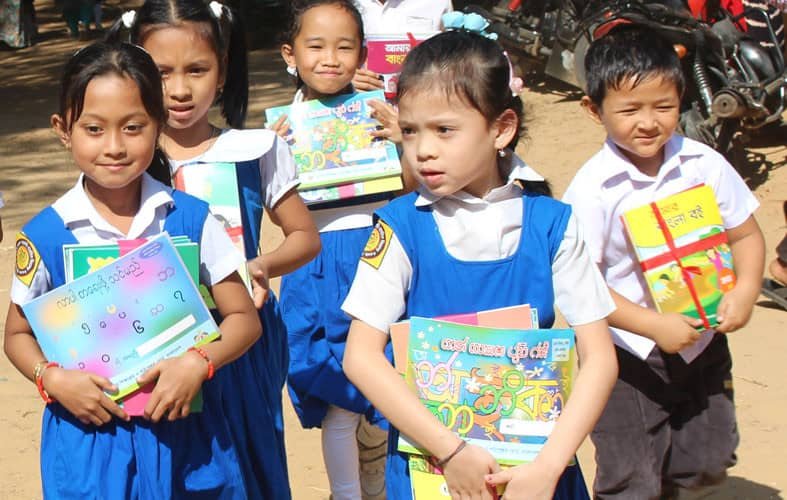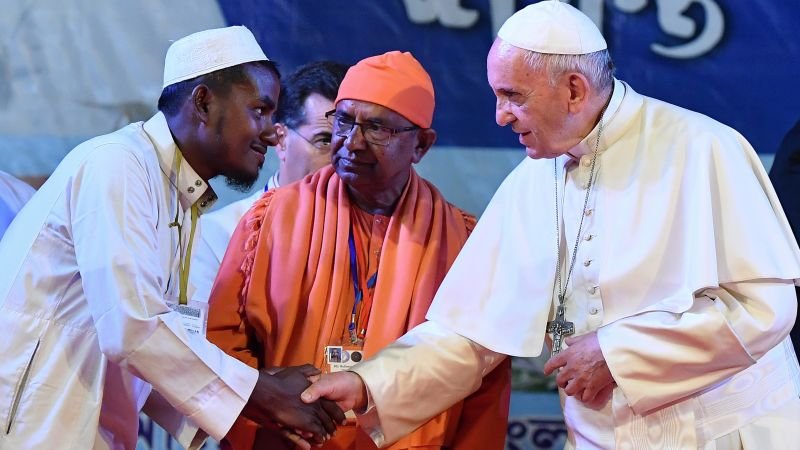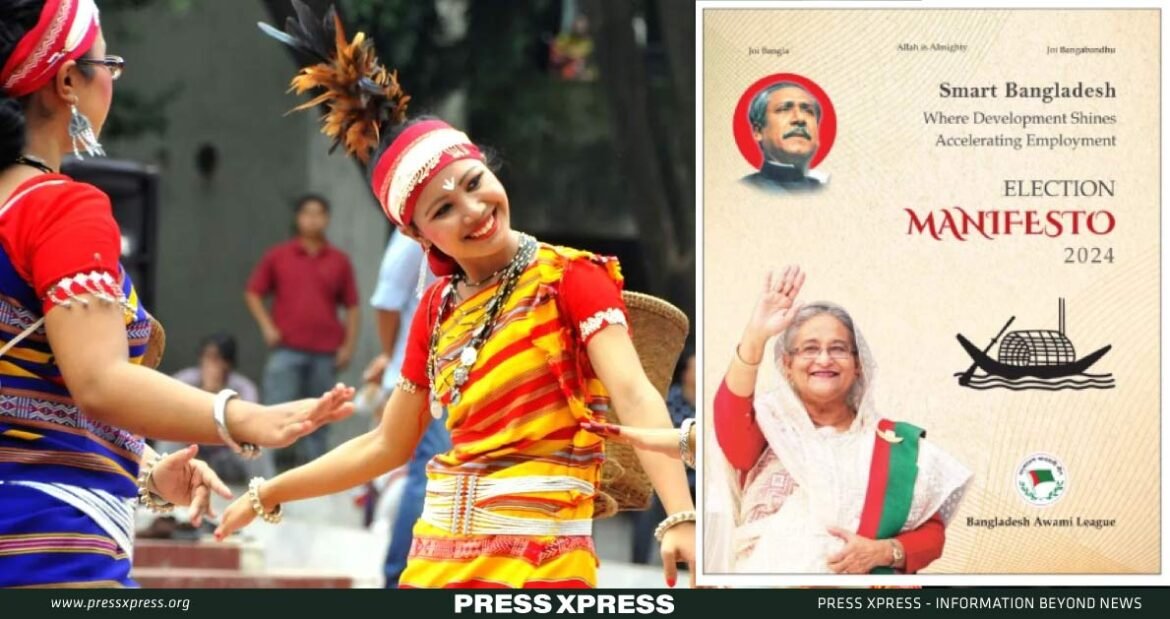Key highlights:
- The government actively encourages and supports the preservation and exhibition of the diverse traditions and cultures of small ethnic communities
- In the fiscal year 2012-2013, a life improvement program was inaugurated in seven districts as part of a pilot project, targeting marginalized communities
- The number of hijra beneficiaries has risen from 1,012 in 2006 to 6,884 in 2022-23, with 5,620 receiving special allowances
- A nationwide initiative is scheduled to be launched, with a focus on providing assistance and housing to socially disadvantaged groups
Amidst the rich culture of Bangladesh, a crucial mandate surfaces – to forge a future emancipated from the ominous specters of religious discrimination, terrorism and militancy. As the nation strides ahead, the resounding call to preserve unity and harmony reverberates louder than ever. Ignited by a shared commitment to champion inclusivity and peace, Bangladesh now stands at a pivotal crossroads.
In modern-day Bangladesh, over 30 lakhs constitute nearly 45 small ethnic communities, whose lives, traditions, cultures, history, and aspirations are intricately linked with the nation. The constitution, shaped by the Father of the Nation, Bangabandhu Sheikh Mujibur Rahman, ensures equal rights and dignity for people of all communities, including ethnic minorities, indigenous groups, and religious minorities.
On the other hand, the collaboration between BNP and Jamaat is actively engaged in both domestic and foreign conspiracies, using social movements as a guise to perpetrate lawlessness, arson, murder, and other destructive crimes. In stark contrast, the Awami League is committed to combating terrorism, upholding democratic rights for all citizens, and improving the overall quality of life for the people.
Guided by the determined leadership of Sheikh Hasina, the Awami League manifesto places a primary focus on eradicating religious discrimination and addressing all types of terrorism and militancy within the nation.
Commitments made in the Manifesto: Counterterrorism and Communalism
The Awami League is dedicated to prioritizing the Constitution in the governance of the state, thereby establishing the rule of law and ensuring the creation of a society free from terrorism.
Under the coalition government, all instances of terrorism, including bombings, arson, and grenade attacks committed by perpetrators at nearly 600 locations simultaneously, will be thoroughly investigated and prosecuted at various levels of the legal process.
Efforts will be unwavering in repatriating the convicted murderers of Bangabandhu who have sought refuge abroad, ensuring their proper trial within the country.
A Pledge to Uplift Ethnic and Religious Minorities, Empowering Indigenous Legacies
The government has instituted a range of programs aimed at assimilating small ethnic communities into society and advancing their progress in terms of education, wealth, worship facilities, and overall quality of life. Specific quotas and facilities have been established to ensure education and employment opportunities for the children of small ethnic communities and tea garden workers, fostering inclusivity and facilitating societal progress.

Education and healthcare services for the people of small ethnic communities have been extended to remote areas. In areas inhabited by small ethnic communities, infrastructure development, including the construction of roads and the provision of electricity, has been significantly bolstered. The government actively encourages and supports the preservation and exhibition of the diverse traditions and cultures of small ethnic communities.
Initiatives have been undertaken by the government to enhance the participation of ethnic minorities in the decision-making process, ensuring their representation in political and social spheres. Allocation of funds and implementation of development activities are carried out aiming to promote comprehensive development.
In the hill districts, special provisions have been established for the development of tourism, food processing industries, and the promotion of small and medium-sized traditional cottage industries. Strategic initiatives such as high-value spice cultivation, cashew cultivation, tulip cultivation, and the adoption of solar power are implemented to invigorate the economy.
Moreover, ongoing grants and development programs are directed towards the enhancement of temples, crematoriums, pagodas, churches, and symmetry.
National Minority Commission and Special Protection Laws in the Pipeline
To protect the interests of minorities, the formation of a National Minority Commission is planned, accompanied by the enactment of special protection laws for minorities.
The policy of ‘ethnic cleansing’ pursued by the BNP-Jamaat alliance during their tenure resulted in violent attacks and discrimination against religious minorities and small tribal groups. Their residences, land, and businesses were subjected to invasion and looting. The Awami League is committed to facilitating the judicial process for these inhumane incidents and preventing their recurrence.

The Bangladesh Awami League is resolute in upholding its commitment to ensuring equal rights across all aspects of life for religious minorities, small ethnic communities, and laborers in tea gardens. A comprehensive policy framework will be sustained to ensure the security of life, property, dignity, and rights of people in all regions, encompassing settlements, islands, rivers, and uplands. Simultaneously, there will be a concerted effort to promote sustainable development and enhance the quality of life for individuals residing in these diverse areas.
Advancing Together with Socially Disadvantaged and Marginalized Communities
Flats have been erected within the Dhaka South City Corporation to accommodate the backward horizon communities. Assistance is extended to mandas, hijras, and leprosy patients, while residences have been established on a two-acre plot.
In the fiscal year 2012-2013, a life improvement program was inaugurated in seven districts as part of a pilot project, targeting marginalized communities. Subsequently, this initiative was expanded to encompass a total of 64 districts by the fiscal year 2015-2016.
During the fiscal year 2019-20, two distinct programs were introduced to foster the development of the Bede and marginalized communities. Both programs have seen extensions, with the life improvement initiative benefiting 82,500 individuals, including 54,300 who specifically receive special allowances. Additionally, scholarships are provided to students.
Under the social safety program, the life improvement initiative for hijra communities was launched in the fiscal year 2012-13. The number of hijra beneficiaries has risen from 1,012 in 2006 to 6,884 in 2022-23, with 5,620 receiving special allowances. In 2014, the hijra community received official recognition as the “third gender,” and in 2019, hijras gained the right to an independent gender identity for voting.
Since the fiscal year 2015-16, financial assistance, scholarships, and training programs have been implemented for hijra communities across 64 districts. Starting from 2021-22, cash assistance and scholarships under this program are facilitated through mobile banking.
Additionally, the manifesto includes commitments such as facilitating the enhancement of skills among the Bede and socially disadvantaged groups through vocational training. This will enable their active participation in productive endeavors and integration into the societal mainstream.
A nationwide initiative is scheduled to be launched, with a focus on providing assistance and housing to socially disadvantaged groups.
The Awami League government has initiated various welfare programs with the overarching objective of safeguarding the fundamental rights of the hijra community, ensuring social justice, and fostering their integration into the broader fabric of society.
Moving ahead on its journey, Bangladesh’s manifesto embodies a vision centered on unity, progress, and empowerment. Driven by an unwavering dedication to equality, justice, and sustainable development, the nation seeks not just to safeguard its diverse heritage but also to forge a future where every citizen flourishes.


